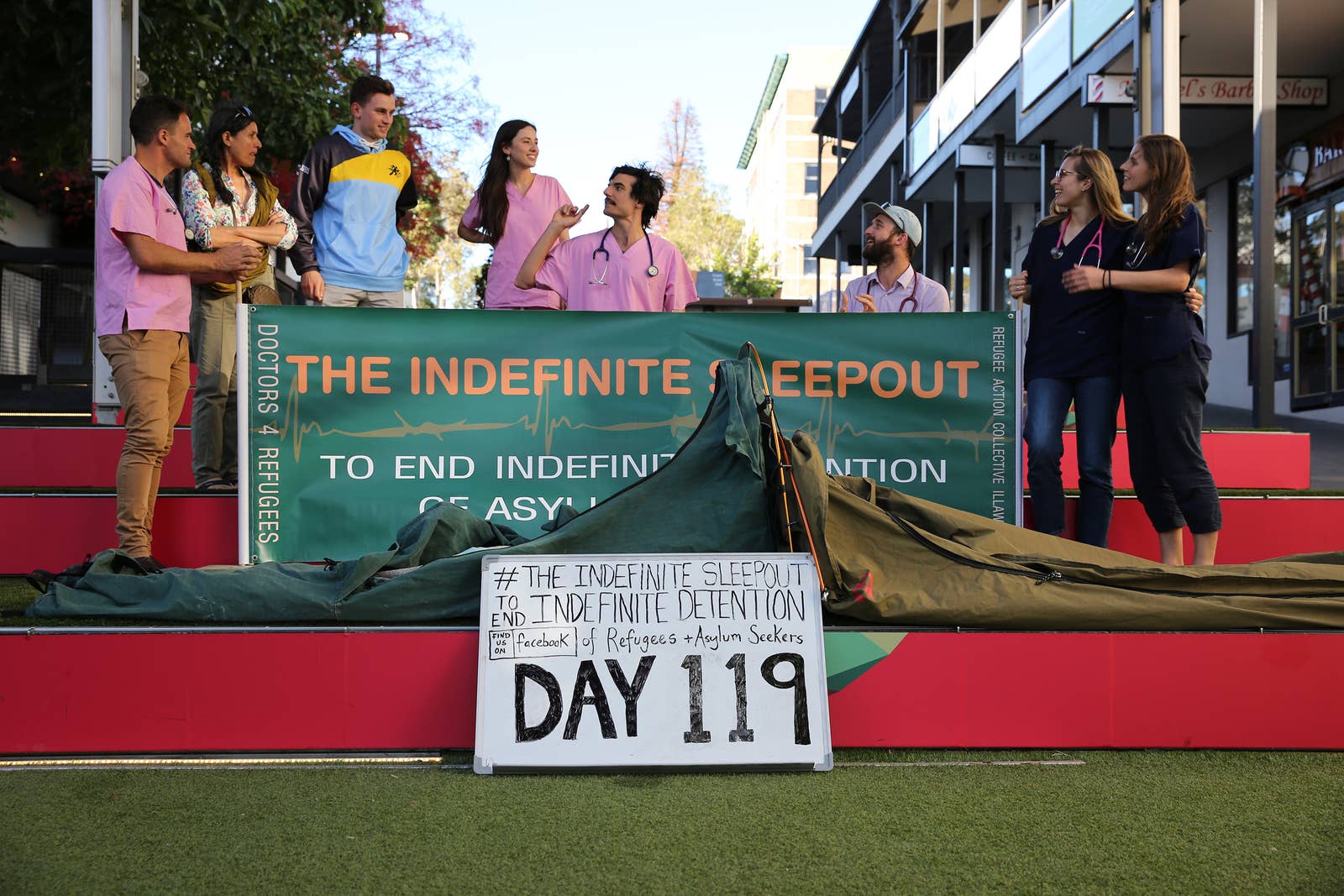
When Javed Badyari was 19 years old, the prime minister at the time, Kevin Rudd, announced that no asylum-seeker who tried to reach Australia by boat would ever be allowed to settle in the country.
In the years since then, Badyari, now 26, has studied medicine, moved from Sydney down to the seaside city of Wollongong, started work as a doctor, and become engaged to medical student Hannah Clements.
While Badyari was finding his feet as a young adult, hundreds of people spent the same six years in a state of permanent uncertainty, held in detention camps on small Pacific islands.
The conservative government that unseated Rudd in 2013 built on his hardline policy, leaving hundreds of asylum-seekers in indefinite detention on Papua New Guinea’s Manus Island and the tiny nation of Nauru. Hundreds remain there today, unsure what their future holds and increasingly suffering ill health.
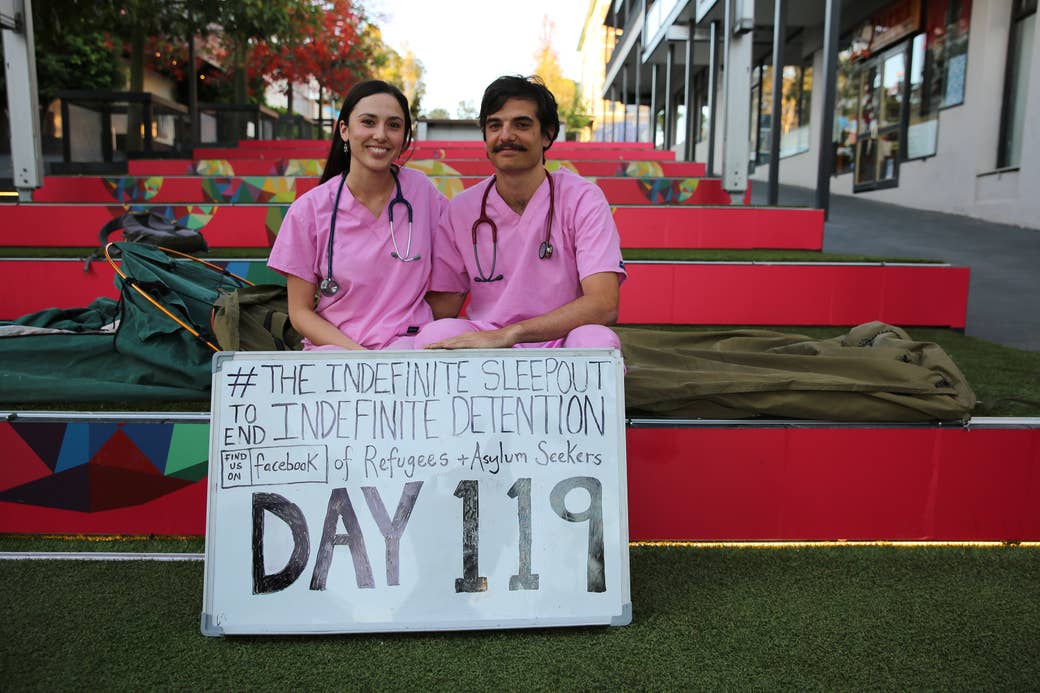
In July, Badyari decided he was sick of just going to rallies and arguing about Australia’s refugee policies with his friends. He wanted to take action. And so the Indefinite Sleepout to End Indefinite Detention was born.
It’s a simple idea: The group will sleep out every night until Australia brings an end to indefinite detention, Badyari told BuzzFeed News, as he and seven others set up in Wollongong's Crown Street Mall for the 119th time.
At first the group consisted of just Badyari and friends. But, he’s keen to emphasise, everyone is welcome.
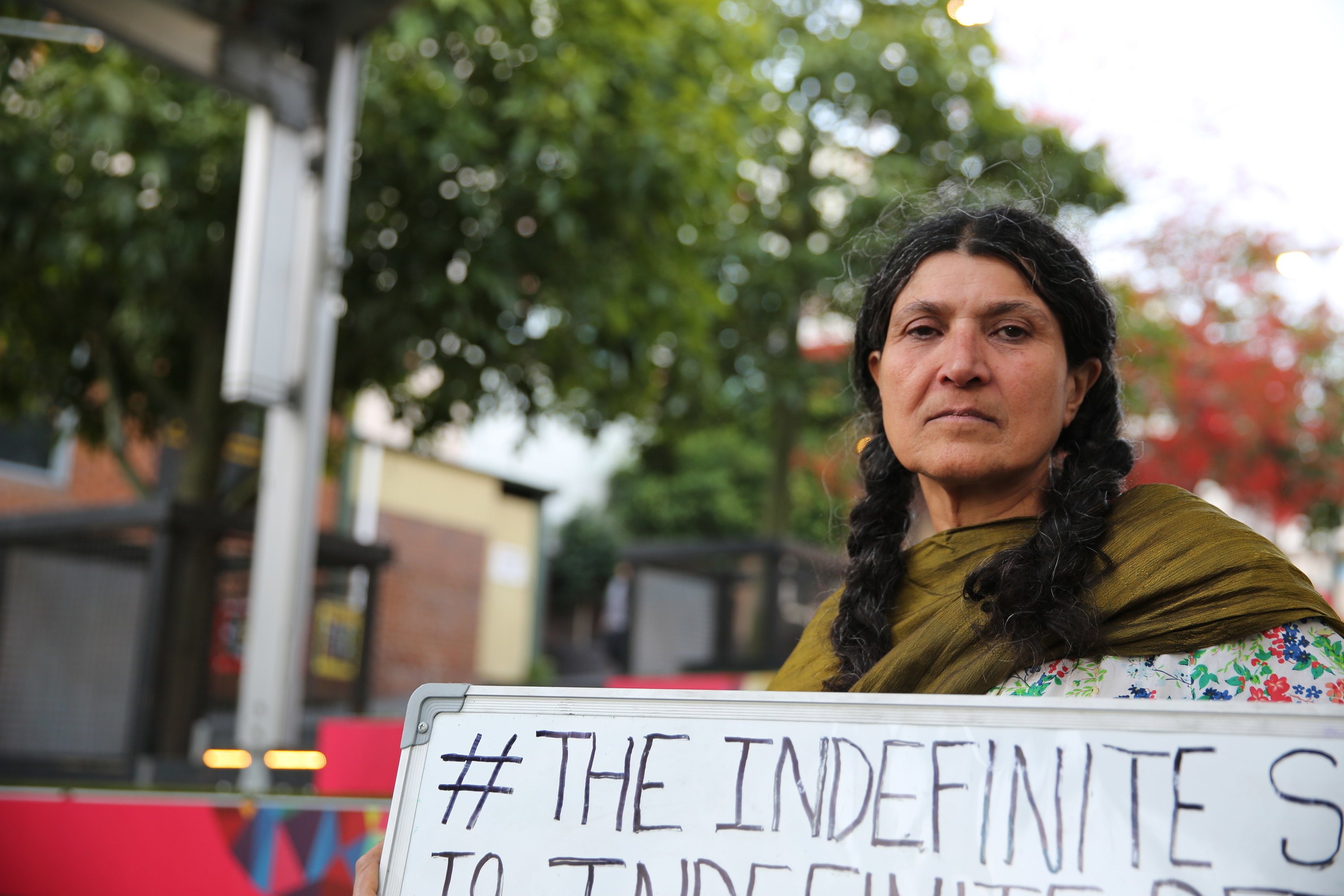
One night, local social worker Rahima Sarmed walked past the group. Seeing the sign, she told Badyari, “I’m going to see you tomorrow night”.
“I didn’t expect to ever see her again but she was there with a sleeping bag the next night, and she’s been there ever since,” he recalls.
After arriving and setting up at about 9pm, the group sleeps on artificial grass in swags and sleeping bags. The local council is supportive of the protest and has granted them a permit. Most of the protesters use earplugs, and if someone needs to go to the bathroom in the night, they’ll go in groups to someone’s house nearby or the cinema down the road.
The biggest night so far was the 100th. Sixteen people slept out, and more would have joined had there been more swags. There were speeches and a bellydancer, and local music groups sang.
People from other states have visited — a couple from Queensland who don’t celebrate Christmas have vowed to fly down to cover those shifts — and similar protests will soon begin in Sydney and Melbourne.
On the day BuzzFeed News visits, the sleepers’ ages range from 20 to 60. Most are medical students, but they’ve also had nurses, social workers, paramedics, high school and university students, and other members of the local community.
Some, like Badyari and Sarmed, sleep out almost every night. Others are new, or only come by once in a while. The group organises its roster with an open-access spreadsheet linked from their Facebook page.
So far the weather has been fine, even in the depths of winter, but they are nervous about the summer heat. Still, being uncomfortable is kind of the point.
“It’s that suffering that carries the message,” Badyari said, while acknowledging that their swags are relatively comfortable and they all have homes to return to. But it’s the extremity of sleeping out that makes the protest effective.
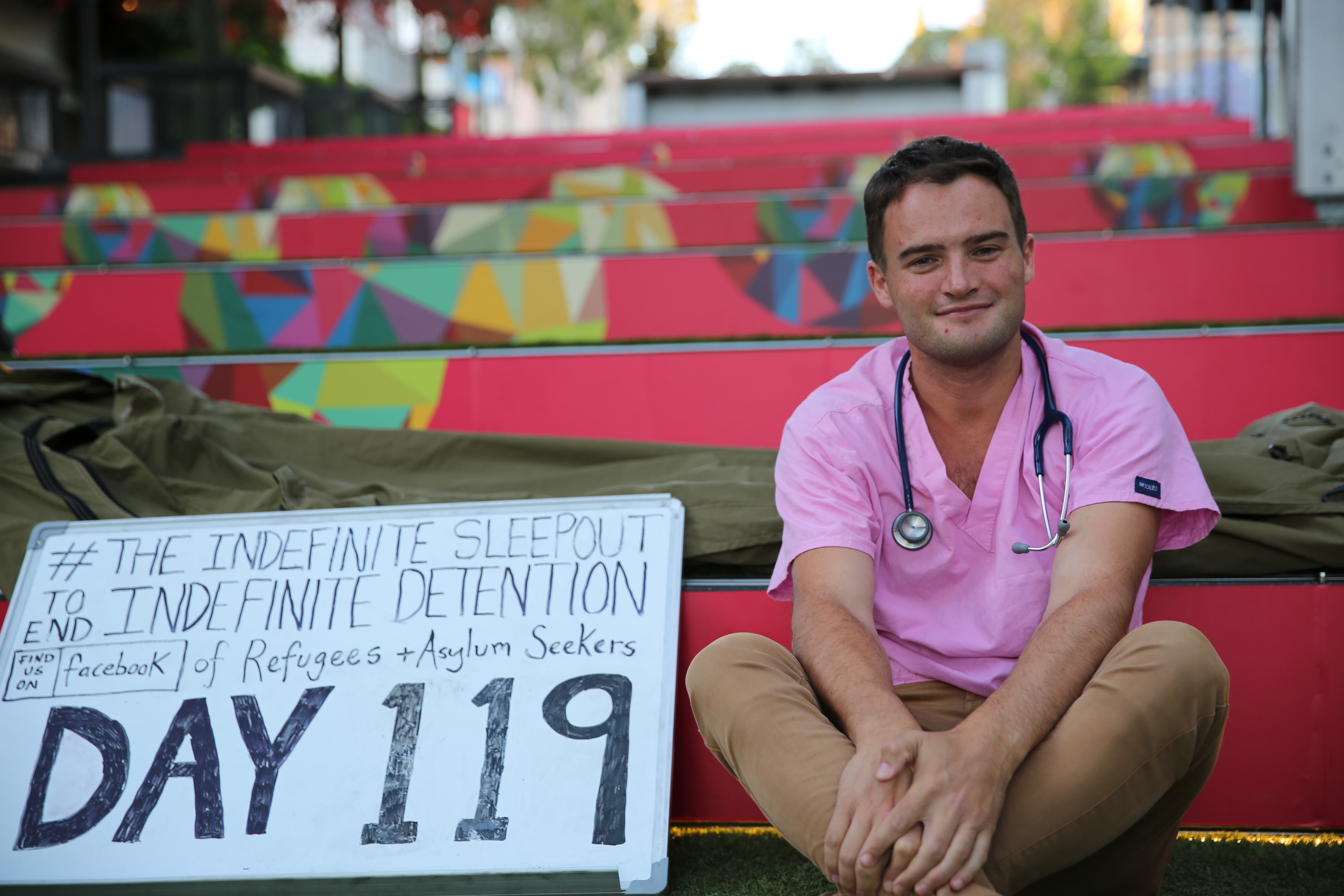
Friends and family seeing their loved ones sleep out “puts the issue in their mind, makes them think about it,” says Justin Clarke, a 35-year-old former occupational rehab therapist, and a medical student.
Clarke recalls a conversation with a conservative friend. “I met up with him and he made a bit of fun of me because he saw one of the posts of me at the sleepout. I thought, ‘OK, he’s going to want to get into another debate’, but after making a few jokes, he said, ‘Nah, but in all seriousness, this is a bit of a joke and they’ve got to stop this’.”
On this day it can be hard to hear people over strong winds and the music blaring from a nearby bar. The area gets high foot traffic from a weekly food truck market on Thursdays and popular pub nights on Wednesday, Friday, and Saturday.
After four months, Badyari has become used to sleeping out and doesn’t get woken by much. “We attract a lot of drunken intrigue and singing, and sometimes a ‘hello, is anyone there?’” he said.
“We're not out here trying to get a good night's sleep,” Clements explains. “We know that it's going to be hard and I guess that's the point of it. The pub nights are rowdy. We have the street cleaners. There was a guy with a leaf blower when we had gale-force winds, so that was funny.”
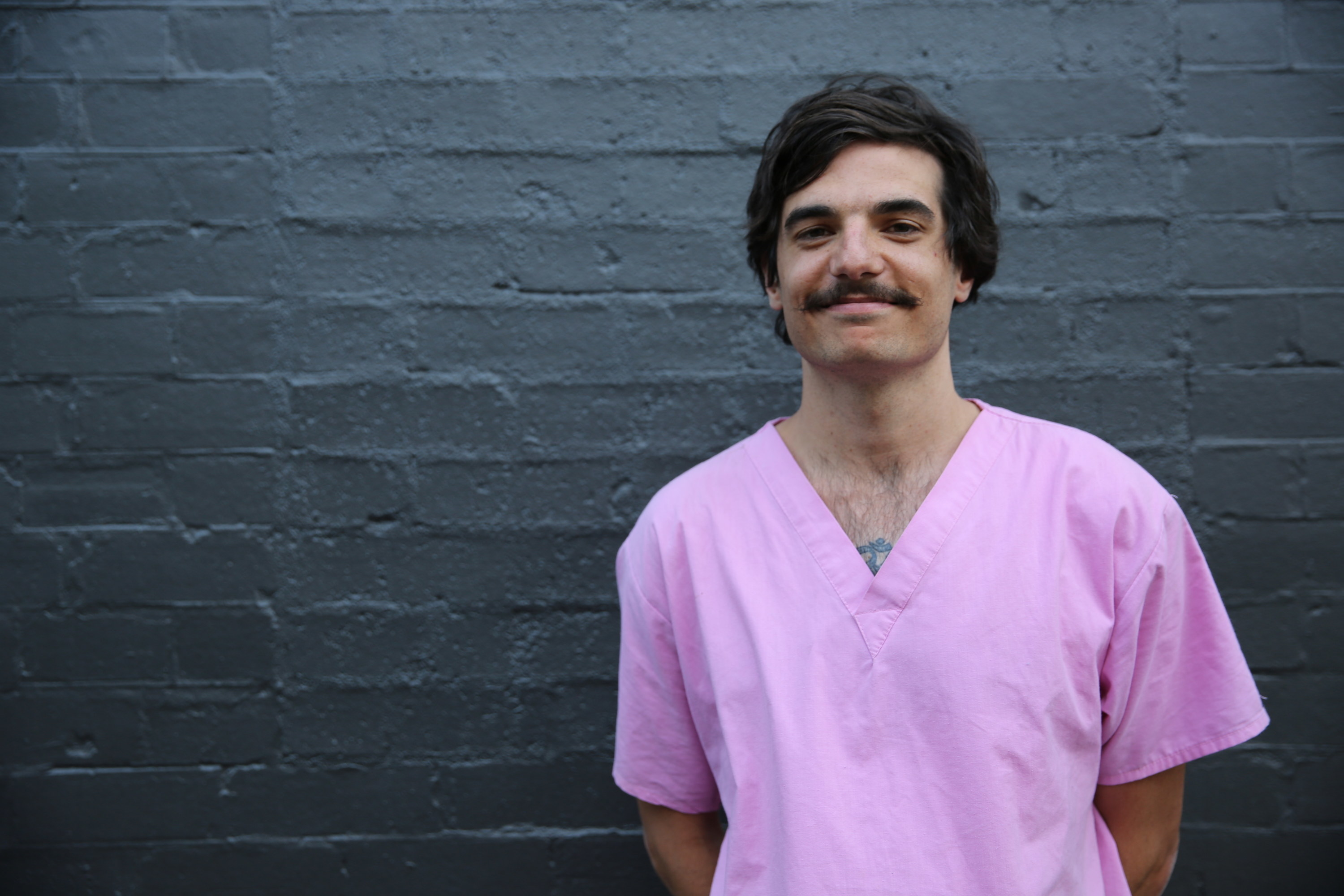
But although it makes it harder to sleep, the louder nights are the best ones. On pub nights, passersby are more likely to start talking to the group, Sarmed explains, which makes it easier to get the message across.
Four months in, the group has become a fixture. Sometimes in the middle of the night, Sarmed hears people saying to each other, “I wonder which night it is”, and then come over to look at the whiteboard recording how long the sleepout has lasted.
Conversations with strangers are at the heart of the protest.
“I’ve always believed very strongly that Australians are very good-natured people, compassionate people, we’re all about mateship,” Badyari said. “Indefinite detention is such a contradiction to our culture and our good nature.”
It only persists because of ignorance and fear, he believes, including messages sent by the media.
“We’re trying to counteract that message by educating people that there is a lot of suffering happening to innocent people whose only crime is fleeing war and persecution and death,” Badyari said.
Some people they speak to have never heard of Nauru, especially younger people.
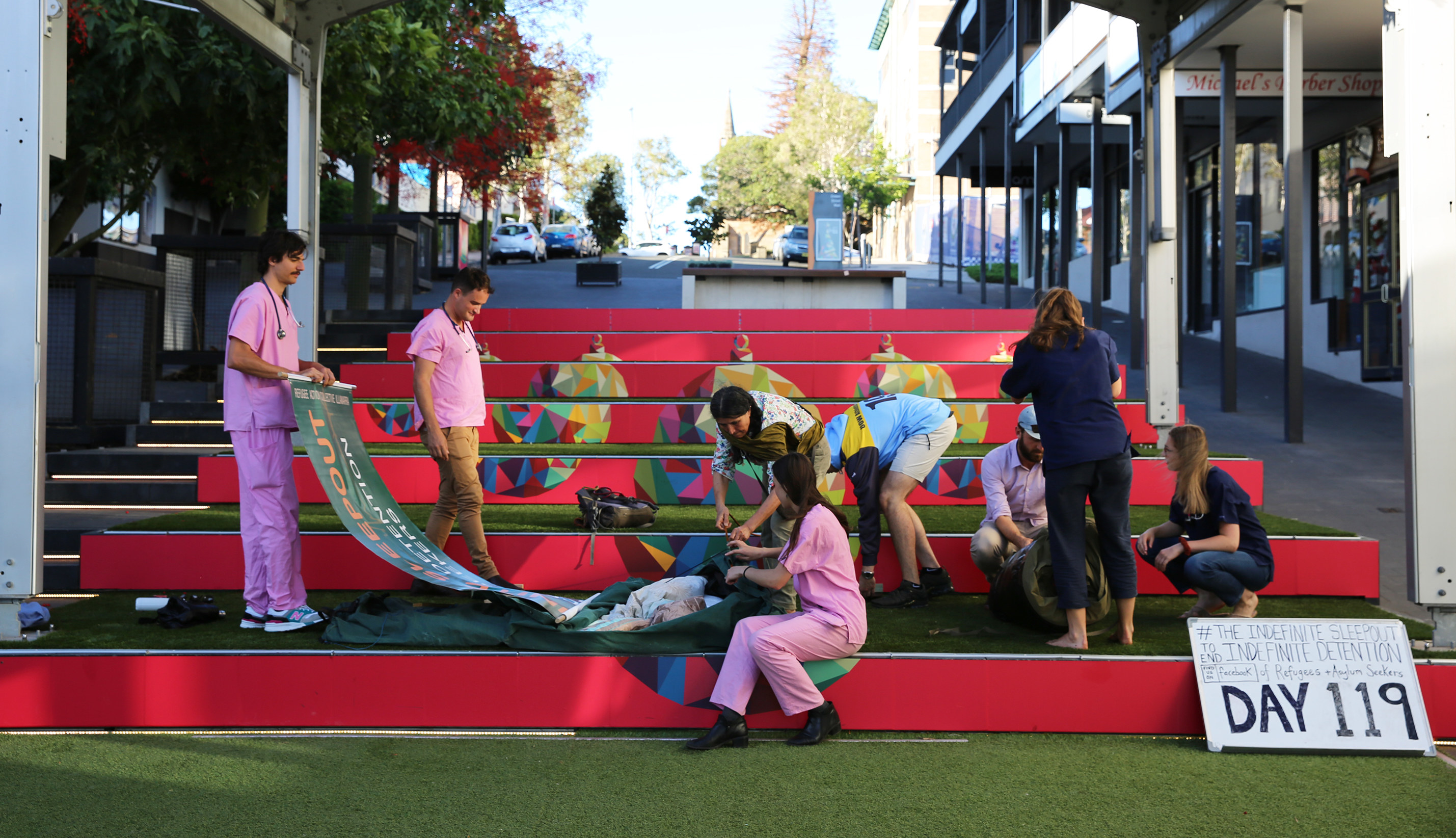
They have received messages of support from people held on Nauru and in Papua New Guinea. People who have worked on Manus and Nauru have also approached them, privately sharing their horror at what they saw.
Group members are pleased that the only negative comments they’ve received have been online, and even those have been relatively minor.
“Once you take the politics away, it’s amazing how receptive people are to understanding more,” says 25-year-old medical student Isabella Walker.
That’s where the group’s scrubs and stethoscopes are particularly useful.
“When you bring the issue back to health, it’s relatable,” Walker explains. “Everyone’s experienced bad health or knows someone who’s experienced bad health.”
Plus, Clements adds, doctors are always meant to work in the interests of the patient: “In an issue that’s been politicised, doctors can bring it back to say, ‘No, no, this is about people who are enduring harm directly as a result of this policy, and they are under our care’.”
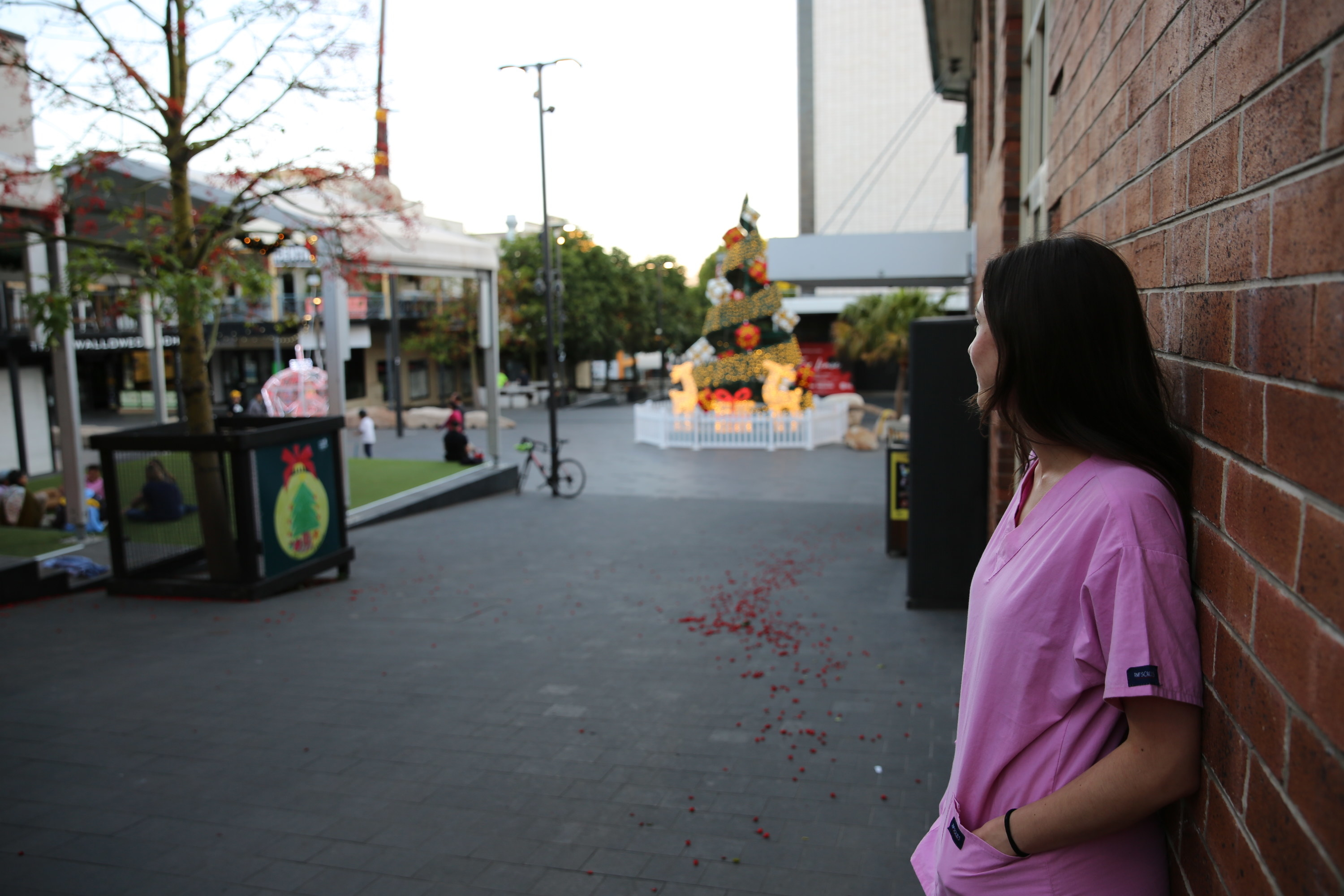
A health crisis has been escalating in offshore detention over recent years, with international medical charity Médecins Sans Frontières concluding that its indefinite nature creates “a perpetual state of despair”, making it impossible to recover, and saying that the mental health situation was among the most severe it had seen around the world.
The day after BuzzFeed News met with the group, the Australian Senate voted to repeal a law that gave doctors a greater say in whether sick detainees should be allowed to access medical treatment in Australia.
The government argued it compromised Australia’s border security and managed to persuade swing vote Jacqui Lambie to side with it.
Despite the lack of hope Canberra politics give refugee advocates, Badyari is optimistic.
“We have pledged to stay here so long as refugees remain in indefinite detention so that no day is forgotten for them,” he said. “And I've got a really good feeling that good things are around the corner. Because we're too good a country to let this continue. And I think the more people know about it, they wouldn't stand for it. I've got a lot of faith.”
